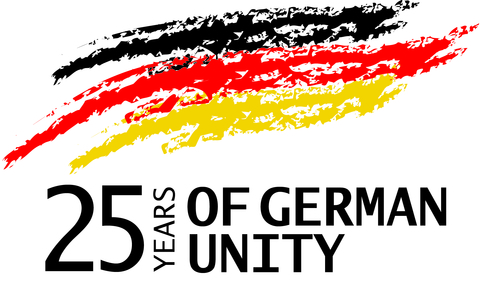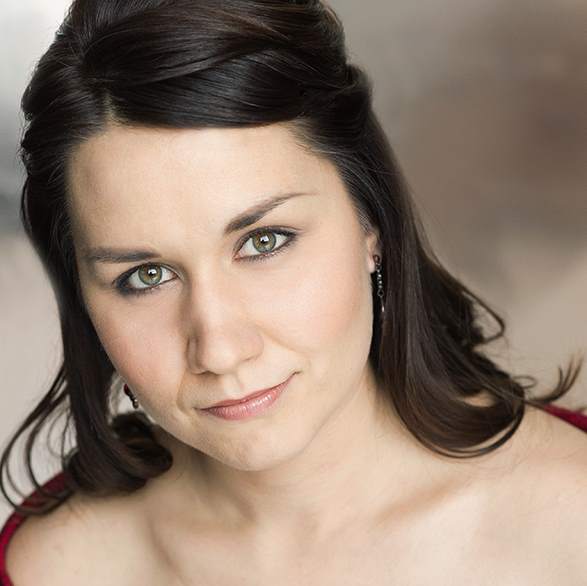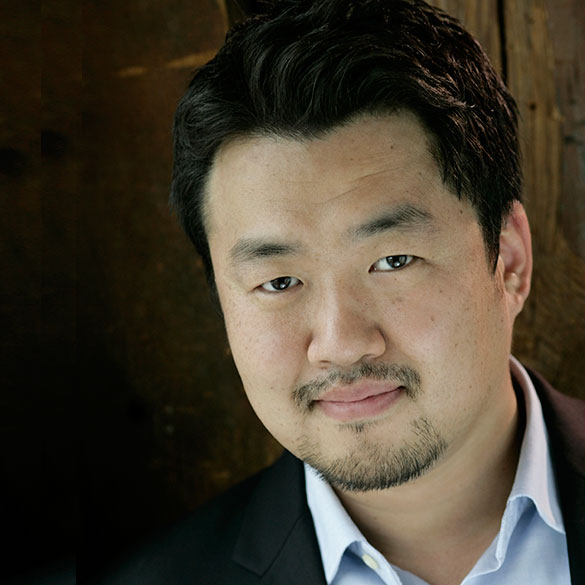War and Peace
Saturday, October 3, 2015 • 7:30 p.m.
First Free Methodist Church (3200 3rd Ave W)
Orchestra Seattle
Seattle Chamber Singers
Clinton Smith, conductor
Elizabeth Zharoff, soprano
Joo Won Kang, baritone

Program
Georg Frideric Handel (1685–1759)
Music for the Royal Fireworks, HWV 351
Pyotr Ilyich Tchaikovsky (1840–1893)
Festival Overture (“The Year 1812”), Op. 49
—intermission—
Ralph Vaughan Williams (1872–1958)
Dona Nobis Pacem
About the Concert
This performance of Handel’s Music for the Royal Fireworks commemorates the 25th anniversary of Germany’s reunification, which occurred on October 3, 1990. Using Russian hymns and the French La Marseillaise, Tchaikovsky’s 1812 Overture provides a blow-by-blow account of the conflict between Napoleon and the Russian Army. On the brink of World War II, British composer Ralph Vaughan Williams drew texts from the Bible and three Walt Whitman poems for his deeply moving Dona Nobis Pacem, contrasting the destructive power of war with cries for reconciliation and peace.
Behind the Music
Get the inside scoop! Hosted by OSSCS music director Clinton Smith, “Behind the Music” explores who and what inspired composers to create. Enjoy a free, fun and informative half-hour session that includes an overview of the music, historical and cultural context for the works, and highlights to listen for during the performance. Begins at 6:30 p.m. (one hour prior to the performance) at First Free Methodist Church.
About the Soloists

With a unique blend of vocal expressiveness, outstanding musicianship and commanding stage presence, soprano Elizabeth Zharoff is emerging as one of opera’s most compelling new young artists. Of her February 2015 debut at the English National Opera in Peter Konwitschny’s production of La traviata, The Independent asserted that her “pure-toned Violetta is a delight from start to finish.” This summer she created the role of Esther in the world premiere of Ricky Ian Gordon’s Morning Star at Cincinnati Opera, and this month she makes her Seattle Opera debut as Leïla in The Pearl Fishers. During the 2013–2014 season, Ms. Zharoff made her Opéra National de Bordeaux debut as Giunia in Mozart’s Lucio Silla and returned to the Semperoper Dresden and Opera Theatre of Saint Louis as Pamina in Die Zauberflöte. On the concert stage, she has appeared with the Cleveland Orchestra, Lake Chelan Bach Festival and the Van Cliburn Foundation. Born and raised in Wenatchee, Elizabeth Zharoff also composes music and designs sounds for video games. Learn more: elizabethzharoff.com

Baritone Joo Won Kang, a native of South Korea, is the first-prize winner of Fort Worth Opera’s 2014 MacCammon Vocal Competition, as well as the Audience Favorite Prize. As a result of this success, Mr. Kang was invited to present recitals both in Fort Worth and New York. This summer, Mr. Kang returned to Wolf Trap Opera to sing the role of Sharpless in Madama Buttefly with the National Symphony Orchestra. During the 2015–2016 season he will sing the title role in Eugene Onegin with North Carolina Opera, Figaro in Il barbiere di Siviglia with Fort Worth Opera, and make his debut with Seattle Opera in The Pearl Fishers. His engagements for the 2014–2015 season included a return to San Francisco Opera as Marcello in family performances of La bohème, a role and company debut as Guglielmo in Così fan tutte with Opera Naples, a debut with North Carolina Opera as Germont in La traviata, and the world premiere of Huang Ruo’s opera Paradise Interrupted at Spoleto Festival USA. Learn more: kenbensonartists.com
Program Notes
Georg Frideric Handel
Music for the Royal Fireworks, HWV 351
Handel was born in Halle, Germany, on February 23, 1685, and died in London on April 14, 1759. He composed this work in early 1749; its official premiere took place in London on April 14 of that year. The version most often performed calls for 3 oboes, 2 bassoons, contrabassoon, 3 horns, 3 trumpets, timpani and strings.
The treaty of Aix-la-Chapelle, signed on October 18, 1748, ended the War of Austrian Succession. To celebrate the cessation of hostilities, King George II of England planned a festive evening the following April in London’s Green Park, to feature music specially written for the occasion, accompanied by a massive fireworks display. George II was the king who purportedly began the tradition of standing during the “Halleluiah Chorus” of Handel’s Messiah, and from this composer he commissioned music for the outdoor festivities. Handel immediately (albeit somewhat reluctantly) acquiesced and even followed the monarch’s edict not to include any stringed instruments in his orchestra, assembling a massive band of double reeds, brass and percussion.
Handel’s work begins with a grand overture in the French style, with a regal introduction leading to a vigorous fugal allegro in triple meter, all in glorious D major. There follows a suite of shorter dances: a boureé in D minor, a movement celebrating “the peace” and another the “rejoicing” made possible by the treaty. The work closes with a pair of minuets, the first in D minor and the second providing a resounding conclusion in D major.
Handel resisted a public dress rehearsal, but the occasion resulted in a great success: an estimated 12,000 people flocked to the Spring Gardens at Vauxhall, causing one of London’s first traffic jams when carriages bottle-necked at London Bridge. At the official premiere, Handel’s music was overshadowed by the pyrotechnics display, during which one of the adjoining pavilions caught fire. The composer conducted the work’s first indoor performance—for which Handel rescored the work to include strings—on May 27, 1749, at a benefit for Thomas Coram’s Foundling Hospital.
Pyotr Ilyich Tchaikovsky
Festival Overture (“The Year 1812”), Op. 49
Tchaikovsky was born May 7, 1840, in Votkinsk, Russia, and died in St. Petersburg on November 6, 1893. He composed this overture between October 12 and November 19, 1880; Ippolit Altani conducted the first performance in Moscow on August 20, 1882. The score calls for pairs of woodwinds (plus piccolo and English horn), 4 horns, 4 trumpets, 3 trombones, tuba, timpani, percussion and strings.
The three works on this evening’s program are all “occasional” pieces (commissioned for a specific event) that have enjoyed widespread success beyond their initial performances—none more so than Tchaikovsky’s 1812 Overture, which became his most familiar and popular composition even though he described it as “very loud, noisy” and “probably of no artistic worth.”
In June 1880, Tchaikovsky received a request for a work “15 to 25 minutes long, with or without a chorus…with a hint of church music,” celebrating the defeat of Napoleon at Moscow in 1812, to be premiered at an Exhibition of Industry and the Arts…or Tsar Alexander II’s silver jubilee…or the opening of Moscow’s Cathedral of Christ the Savior.
While occupied with his Serenade for Strings during the fall of 1880, Tchaikovsky quickly composed the overture, sketching a piano score in just seven days. The March 1881 assassination of the tsar delayed the exhibition (and construction issues postponed the cathedral’s opening), pushing the premiere to August 1882, in an exhibition hall near the cathedral. For outdoor presentations, Tchaikovsky included parts for brass band, church bells and live cannon fire (Orchestra Seattle’s brass and percussion sections will safely supply the necessary firepower this evening).
The battle Tchaikovsky depicts bears little relation to actual historical events. Disease weakened Napoleon’s forces as they approached Russia, the Battle of Borodino resulted in massive casualties on both sides, and the French arrived in Moscow to find the city nearly abandoned and set ablaze.
The overture opens with a string sextet intoning a Russian Orthodox chant (“Save Us, O Lord”), later incorporating “La Marseillaise” (not actually in use during Napoleon’s time) to represent the French, the Russian national hymn “God Save the Tsar” (composed several decades after 1812), a Russian folksong (“By the Gates”) and a melody taken from Tchaikovsky’s 1869 opera The Voyevoda.
—Jeff Eldridge
Ralph Vaughan Williams
Dona Nobis Pacem
Ralph (pronounced “Rafe”) Vaughan Williams was born October 12, 1872, in Down Ampney, Gloucestershire, England, and died August 26, 1958, in London. He composed the cantata Dona Nobis Pacem in 1936 on a commission from the Huddersfield Choral Society, who gave the premiere on October 2, 1936 with the Hallé Orchestra conducted by Albert Coates. In addition to soprano and baritone soloists and chorus, the work calls for 3 flutes (one doubling piccolo), 2 oboes, 2 clarinets, 2 bassoons, contrabassoon, 4 horns, 2 trumpets, 3 trombones, tuba, timpani, percussion and strings.
After military service during World War I, first in the Royal Army Medical Corps Territorial Force, where he assisted in evacuating the wounded, and later as an Officer in the Royal Artillery, Ralph Vaughan Williams became professor of composition at the Royal College of Music. Always deeply interested in the English choral tradition, he conducted local choruses at the Leith Hill Music Festival and composed choral works for such events.
Vaughan Williams’ cantata Dona Nobis Pacem, a precursor of sorts to Benjamin Britten’s War Requiem, appealed powerfully for peace as war’s thunderclouds gathered threateningly over England. Vaughan Wiliams biographer Simon Heffer observes that the composer’s “main inspiration is drawn not from the soil of England, but from the whole world going mad around him.”
“Lamb of God, who takes away the sins of the world, grant us peace!” the solo soprano implores as the short opening movement begins, and soon the chorus takes up the plea’s painful dissonance—will another conflict demonstrate once again, and add to, the world’s sinfulness?
In the second movement, a setting of a Walt Whitman poem from the collection Drum-Taps that arose from his “nursing” experiences during the American Civil War, mercilessly militaristic percussion and brass answer the first movement’s agony-colored outcries as chromatic, triplet-studded choral calls for an inevitable war drown the preceding movement’s entreaties for peace.
“Reconciliation,” a setting of another Whitman poem from Drum-Taps, follows in the third movement as Death and Night gently wash away war’s horrors with music for baritone solo and chorus (divided into as many as seven parts) that is “beautiful as the sky” and bathes wounded eyes and hearts with cleansing tears. A baritone soldier tenderly kisses his dead enemy in his coffin, and the solo soprano again begs for peace for the war-soiled world.
Vaughan Williams had composed the somber funeral procession “Dirge for Two Veterans,” a setting of a third Whitman poem from Drum-Taps, prior to the First World War, but it had remained unpublished and unperformed prior to its repurposing as the fourth movement of Dona Nobis Pacem. Recurring solemn tattoos of four sixteenth notes followed by two quarter notes accompany a mother’s (and our own) march to the double grave of her fallen husband and son—what can we give them but our love? The sorrows of previous wars are thus brought into the composer’s present—and into ours. Will we learn nothing from such suffering?
The solo baritone refers at the beginning of the cantata’s fifth movement to the Angel of Death (who killed the first-born sons of Egypt’s people and cattle during the last of the Ten Plagues) as Vaughan Williams sets to music a brief excerpt from John Bright’s eloquent 1855 anti–Crimean War speech to the House of Commons. The soprano soloist and chorus go on to plead for a peace that appears impossible. Hope begins to rise, however, with the baritone solo in the cantata’s last section, as a number of Biblical quotations, chiefly from the Old Testament, look toward the eventual triumph of God’s universal “peaceable kingdom.” Christmas bells and the angels’ promise of “peace on Earth” combine with the solo soprano’s final but still-unfulfilled prayer—the cantata’s refrain now cleansed of its initial chromaticism and whispered above the susurration of the eight-part unaccompanied chorus—as the work closes, with God’s peace being humanity’s only hope.
—Lorelette Knowles
